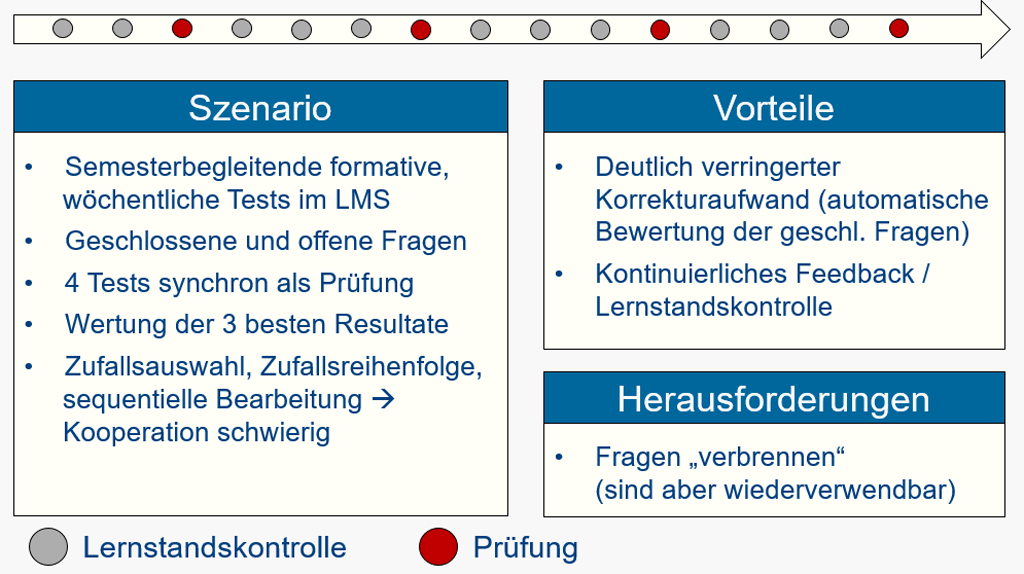Semester quiz series
Brief description
The quiz series aims at integrating smaller examinations, distributed over the semester, into the normal practice sessions in the context of a portfolio examination, thus keeping the burden on students and teachers low. The final exams (written exams, oral exams) can be omitted. The workload of the students as well as the correction effort for the teachers can be easily scaled by the number of examination events, the number of questions per quiz as well as the proportion of open questions. Through the settings of the ILIAS tests, the cooperation of students during the test can be minimized to a large extent (see below).
Procedure and digital tools
In Stud.IP, learning objective tests in the form of ILIAS-Tests are released at the next lecture date (gray dots in the figure). These can be answered by the students in the course of a week up to a time specified in the system. The evaluation of the closed questions is done automatically. On the other hand, the learning objective check takes place synchronously on four dates distributed over the semester (red dots). Release time, running time and time of deactivation of the test are set in ILIAS. By randomly selecting the questions, randomly mixing the questions when compiling the test and setting that the questions can only be answered in the order shown, cooperation among the participants is strongly hindered. To compensate for temporary access problems or other reasons for non-participation, only three of the four learning objective exams are scored. If there are four participations, the best three will count; if there are fewer than three participations, alternative formats (e.g., oral examination) will be offered to compensate. As an incentive, questions from the learning objectives assessments can be integrated into the exams on a pro-rata basis (e.g., one out of six questions is known). For grading purposes, an average is calculated across all three exams

